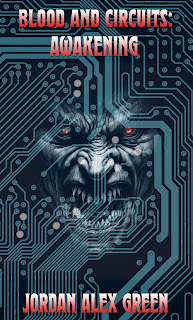It doesn't get mentioned enough. But one thing that happens and happens quickly when you're writing a story is that you get used to the font, you get used to your words, you know what you're talking about.
And because of that, it's possible to, even if you're doing your best, just miss stuff as you give your masterpiece a read. In fact, this is one reason for editors--a fresh pair of eyes that haven't read the same words ten times and thus just miss the fact that "there" should be "their."
Now, while there is no substitute for having another set of eyes look at your work, there is one thing you can do, especially in this era of word processing programs.
Change your font, size, and spacing, and see what happens. To use an example from one of my very rough first drafts:
***
The buzz of the alarm woke Alyana up from under her nest of blankets. She yawned once, then reached out and hit the alarm, stilling it.
“It’s early…” a sleepy voice murmured from the other bed.
“No, you didn’t wind your clock up,” Alyana said as she threw the blankets off and walked over to the window, staring out at the rising sun. “If you don’t hurry, you’ll miss breakfast, Dana.”
“Don’t care…” the vaguely person-shaped pile of blankets said.
“How late were you out last night?” Alyana asked. She ran her fingers through her dark hair, pulling it over her shoulder.
Vs.
The buzz of the alarm woke Alyana up from under her nest of blankets. She yawned once, then reached out and hit the alarm, stilling it.
“It’s early…” a sleepy voice murmured from the other bed.
“No, you didn’t wind your clock up,” Alyana said as she threw the blankets off and walked over to the window, staring out at the rising sun. “If you don’t hurry, you’ll miss breakfast, Dana.”
“Don’t care…” the vaguely person-shaped pile of blankets said.
“How late were you out last night?” Alyana asked. She ran her fingers through her dark hair, pulling it over her shoulder.
***
The two passages look completely different and thus, your eyes aren't just going to pass over them because they've seen those words a million times. There's a subconscious "hold on a moment" going on that lets you see, at least partially, your work as new again.
If you want to get wild, you can always change the color of your words. I know some writers who do that, but others find it unhelpful and actually annoying. That gets into personal preference, but if you find bright pink to call out the inner detective in your editing sense, go for it. That's the lovely thing about modern computers--it doesn't cost you anything other than one or two keystrokes.
So go crazy! Set your second read text to 18 point Helvetica Bold and see what happens!

